Born in Malaysia and raised in Perth, Western Australia, Linda May Han Oh began playing the clarinet at eleven and the bassoon at thirteen, joining the Western Australian Academy of Performing Arts in 2002 as a bass guitarist before gravitating toward the upright bass. Her master's thesis at Manhattan School of Music analyzed Dave Holland's solos through the lens of North Indian classical rhythms—an early signal of her interest in finding connections between disparate musical traditions and making them her own. Nobody in her family played professionally. "It's cute that you play music," they told her, "but you need to figure out what you're going to do."
She figured it out. Multiple Bassist of the Year awards from the Jazz Journalists Association, a Grammy for New Standards Vol. 1 alongside Terri Lyne Carrington and others, the prestigious Herb Alpert Award, collaborations with Pat Metheny, Kenny Barron, Joe Lovano, and Vijay Iyer. She served as the model for the bassist character, Miho, in the Pixar film Soul. An Honorary Doctorate from Manhattan School of Music in 2024. Associate Professor at Berklee College of Music. Six albums as a leader, each one pushing further into questions of structure, improvisation, and emotional scope. The trajectory has been steady with recognition earned through both technical mastery and conceptual ambition.
Linda May Han Oh’s new album, Strange Heavens, released on Biophilia Records, returns to the chordless trio format of her 2009 debut Entry, reuniting her with trumpeter Ambrose Akinmusire and pairing them with drummer Tyshawn Sorey. The configuration invites comparison to that earlier record, but listeners should resist the temptation. These three musicians have traveled considerable distances since then—Akinmusire and Sorey have both become fathers, and Oh’s son, Nilo, was born four years ago. Each has developed into a wholly original composer and conceptualist, whose work becomes increasingly innovative by the year. Their convergence at this point is a chart of distance traveled.
The album's title borrows from an old adage: human beings tend to choose familiar hells over strange heavens. Oh wrote much of the material around the 2016 election, grappling with questions about power, comfort, and the decisions we make about what we tolerate. The compositions move through anxiety, release, hopefulness—a sequence of emotional states that have no tidy resolution. Several tracks draw imagery from Shaun Tan's wordless graphic novel The Arrival. Oh also includes pieces by Geri Allen and Melba Liston, acknowledging the lineage of women who created space for this work to exist.
Linda May Han Oh was a guest on The Tonearm podcast, where, with host Lawrence Peryer, she discussed how the album's organizing principle came together, her compositional approach as an imaginative rather than technical exercise, and the ways improvisation requires presence and deep listening. She reflects on her early years with the instrument, the collaborative dynamic with Akinmusire and Sorey, and how specific compositions, such as "Avalanche," "Alchemy," and the title track, explore tensions between opposing forces without attempting to resolve them.
Listen to the entire conversation in the audio player below. The transcript has been edited for length, clarity, and flow.
Lawrence Peryer: The human tendency to choose a familiar hell over strange heavens—how or when did that become an organizing principle for this record?
Linda May Han Oh: I'm not really sure what the moment was that struck me to do that. A lot of the music that I was writing was around the time of the election, so there were a lot of thoughts about the decisions we make when deciding who we want in power, what those decisions entail, and what we as human beings are comfortable with. I think when I think of that phrase—that we often choose a familiar hell—that can pertain to our everyday lives, everyday relationships with people, to bigger picture issues such as having healthcare for everybody or not, or when it comes to changing gun laws. In many ways, change is hard.
I wanted to use that as the guiding principle, just to make us think a little bit about what our familiar hell looks like and what that strange heaven could be. It's good to ask yourself those questions, whether that be in a micro setting of your own community, your own day-to-day life, or a macro setting.
Lawrence: There's an ironic sense to this album because you’re looking back in terms of the chordless trio format and working again with Ambrose Akinmusire. As an artist and a creative being, how can you make sure it’s a strange heaven and not a familiar hell when you're revisiting people and formats you've worked in before?
Linda: I tend to think about the whole Heraclitus philosophy of, “you'll never really enter the same river twice.” It'll always be different, you know? Time has changed us all in many ways. Inevitably, things will be different, and I think that for me, it is more of a statement of where we are now. For example, the first album's title is Entry, and the idea was that it's a journal entry of where I am now. And it's also my entry into the world in the sense that it was my first album as a leader. So, when I put music out there, for me, it's more about saying, “This is where I'm at. This is what I'm thinking about. This is what I'm doing with my peers, and this is what I'm interested in.” So I'm not so concerned with whether it's just as good or better than what I've done in the past. I hope that people can hear and feel that I'm growing and I'm a lot more mature and comfortable in my own skin. But, you know, it is what it is, and I love documenting that. And that's why I love recording and putting music out there.
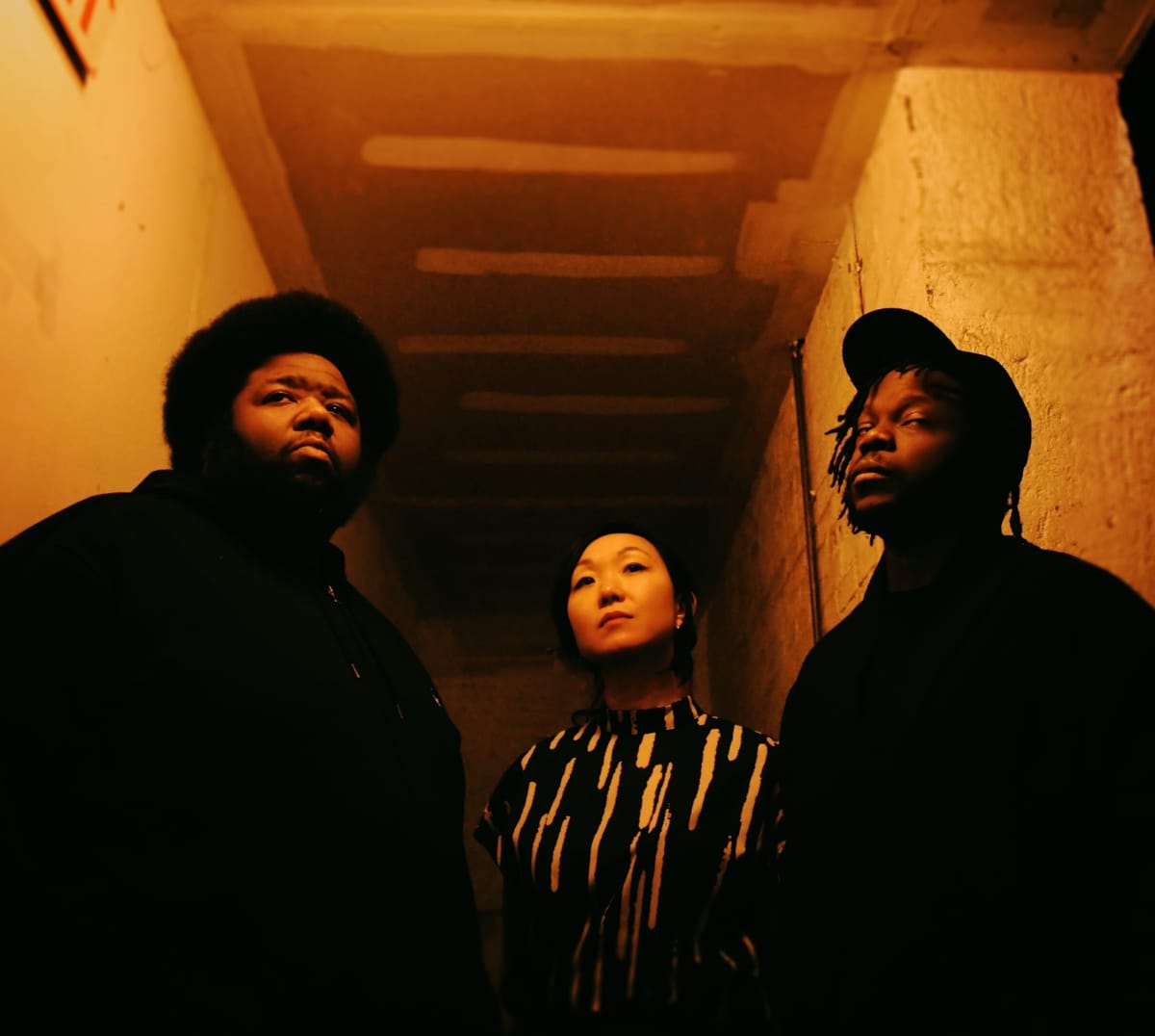
Lawrence: It seems there is meaning and intention throughout the entire course of a project, if you will. Before composing, do you sit with a philosophy or a thought?
Linda: One thing that's changed for me in the past several years is that I focus more on the experience of composition than necessarily the nuts and bolts or the ingredients that go into it. I visualize what I would feel if I were sitting in the front row at my own concert. Like, if I were sitting and watching this particular group, what is it that I want to feel and what is it that I want to hear? What's the energy that I want to bring home from that particular moment? That helps me, first of all, compose and construct those elements that will help me feel that way. And with that comes the emotional element, and how it will be conveyed through the music. And I love that process because it really makes me think about what the experience I want to have is, and not what anybody else wants to have. After all, you're going to go crazy trying to imagine what everyone else wants to experience and how they're going to interpret the music and the emotions.
So if I'm sensing a certain feeling, for example, a feeling of catharsis, I think about what that means to me if I'm sitting front row, and what I want to hear from that. From there, it can start with a simple sound. It can start with a specific chord. It can start with a melody, a pitch, or a tempo. And that just opens everything up for me and makes me feel like I don't have any sort of obligations when it comes to creating or writing music. It's just about the present moment and the experience that I want to take away from that particular piece.
Lawrence: As you were speaking, I was thinking about how exciting and fun it must be imagining the musicians who you're going to have as you're putting together an ensemble or a project, and what you want to hear these musicians play.
Linda: Yeah, exactly. And it is fun just to use your imagination.
Lawrence: Does that imply that there's a certain aspect of this where you enjoy putting people in different situations than we might expect to find them in?
Linda: Yeah, I guess so. I think I'm lucky to be working with improvising musicians who have navigated many different spaces and settings and are comfortable with uncertainty. It's always fun to explore what that uncertainty is. But with experienced improvising musicians, it's also a fun exploration when we're playing in the moment.
I'm going to use a surfing analogy because I spend a lot of time surfing. When you're out there, you're never really sure when a wave's going to hit, what type of set is going to come through. Something is thrilling about that element of surprise. And I feel like that's what I love about playing improvised music. There's an element of having your framework, having your surfboard, and knowing what you want to try to do, but you're not sure when the wave's going to come through. There's something just so exciting about that moment of just grabbing that opportunity and seeing where it takes you. And I love working with people who embrace the thrill of it all, the thrill of improvisation, and that element of surprise and making it better.
Lawrence: I struggle with this, but I try to approach all of my life experiences in the moment as if they are unique and they are happening for the first time. I wonder if playing music helps you feel like that. Do you feel like your music-making enables you to develop that muscle or that sense of awareness?
Linda: I hope so. Even when it comes to improvising, we're always learning. You're listening to somebody else, you're responding to what they're doing. If you're trying to strategize what you're about to play, you actually have to be in the moment and really listen to what's happening. That also requires you to have these things that you've worked on for many hours—the muscle memory or just things that you were getting better at, doing whatever the things that you might be working on—so that they can be in your arsenal when you need them and call upon them. But it has to feel natural and organic in that moment, and, to an extent, there's no forethought, or you can't think too far ahead, otherwise you've lost that moment of just being in that space.
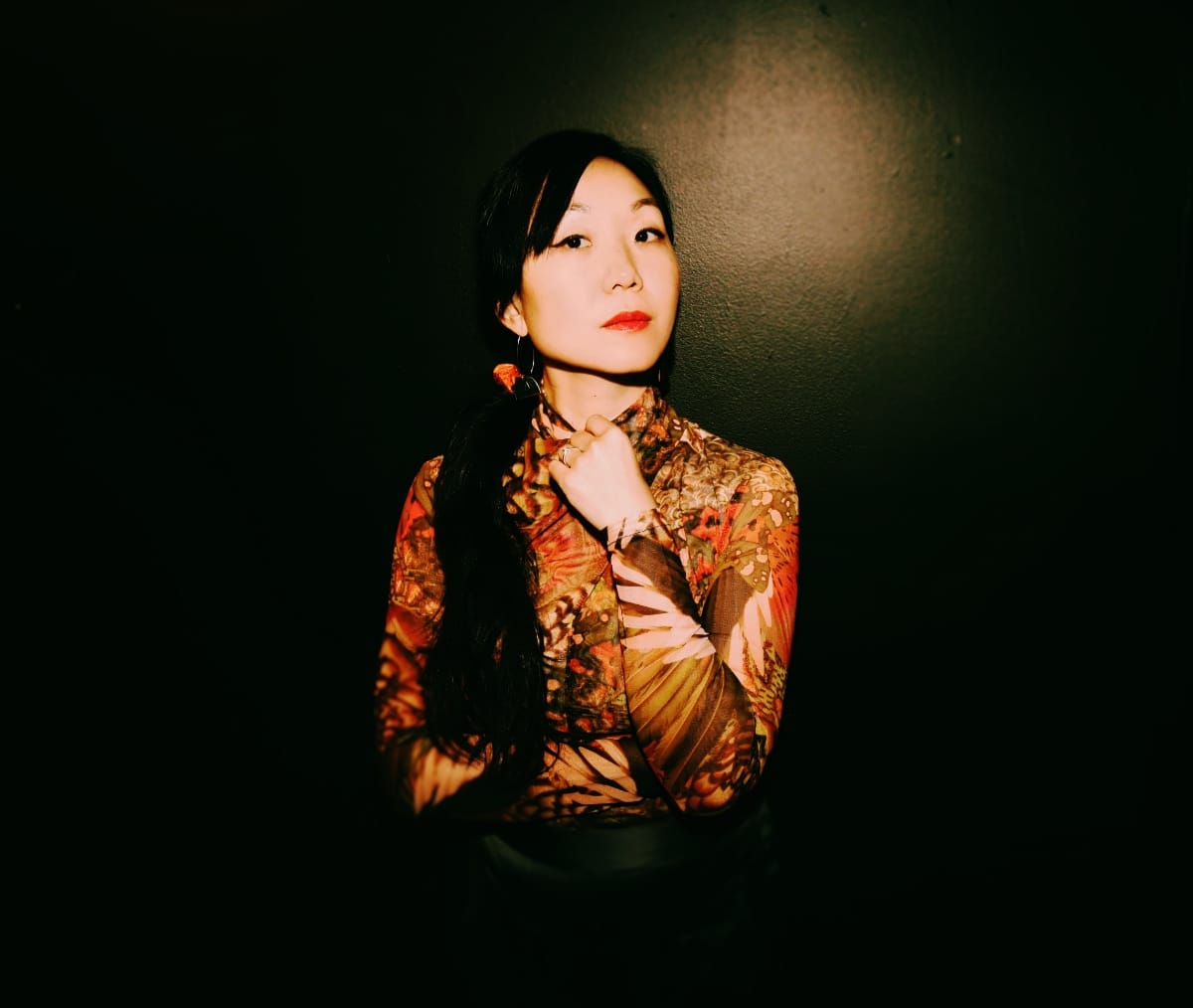
Lawrence: Have you always been a surfer?
Linda: Always. I think I was in the water probably before I learned how to walk, because I was from Malaysia, which is on the coast, and I spent most of my childhood growing up in Perth, Western Australia, which is also on the coast. So between surfing and swimming, I was in the water a lot.
I don't often bring this up, but the only reason I started playing bass was because I thought being a double bass player would help my surfing. I have two older brothers who were very into sports. They would go to a competition in football or basketball every few weeks. My mom was like, “Well, it's kind of important that you have an activity—you're not doing anything.” At the time, I thought, “I want to do something that will help me with my surfing,” and I believed playing the bass would keep me calm because it was very meditative.
Lawrence: I love that.
Linda: Yeah, it was kind of a by-product. I was like, “I don't want to be a professional musician; I want to be a pro surfer.” That was a childhood thing. But yeah, it was a bit of an accidental career.
Lawrence: Do you remember when you first heard the sound of an upright bass or someone playing one in a group, where it actually made an impression on you?
Linda: When I started playing bass guitar, it was also in conjunction with taking up the bassoon. So I was playing the bassoon because I wanted to be in the Western Australia Youth Orchestra. And I learned the bassoon because they needed bassoonists, so that I could be part of the string ensemble that they had, but also perform with the orchestra. I think just hearing a lot of low-register instruments, whether it was tuba or cello or bass clarinet, I just loved all that. Then, Nicole Slatter, who was my jazz bass teacher, asked, “Have you thought about playing upright bass?” My thought was, like, that's a cool—it's like the lowest instrument, so I was pretty excited about that. And I'd heard recordings of Charles Mingus and Dave Holland when I first took up the bass, and I just loved that sound. It sounded so deep and rich and woody, and I really wanted to work at that instrument.
Lawrence: Do you remember the first Charles Mingus record that was played for you?
Linda: I don't know what album it was, but it was like a boxed set of Charles Mingus. The first Charles Mingus album I got was actually Mingus Ah Um. So I got those two, and then I got a four-CD set of Dave Holland, which was quite exciting. I heard so many different styles, like jazz fusion, all these different types of sounds, and it was just—I was like, “Wow, this is incredible.”
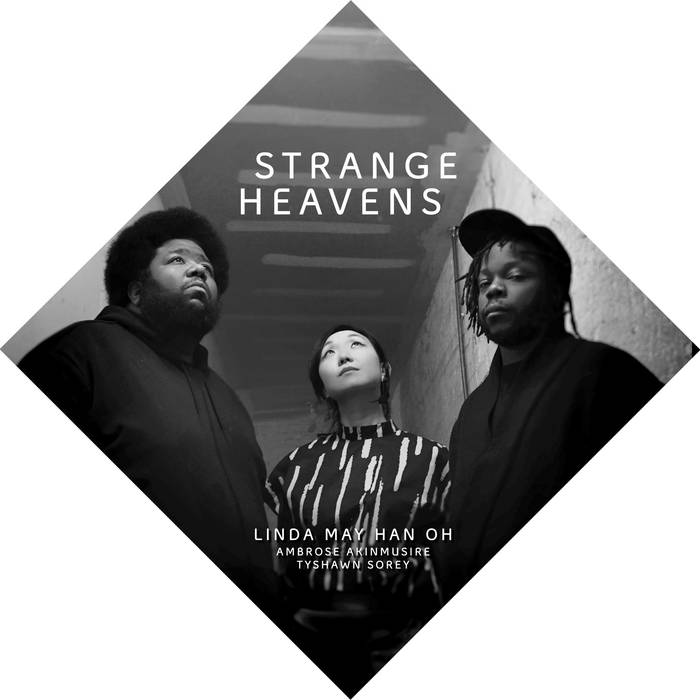
Lawrence: I'd like to revisit something you mentioned earlier. You said that when you're composing and imagining the experience you want to have while sitting there listening, you think a lot about what you want to feel. When you think of these compositions and when you think about this album, Strange Heavens, what were you trying to feel?
Linda: I think a lot of it was catharsis, honestly. There were times when I felt trapped and wanted to feel released. And so a lot of the music on the album is very much trying—for me, anyway—to find a path of release. There's a lot of intensity. I think you will hear that, and there's also hopefulness, you know? So it goes through these different moods—there's anxiety, there's release, there's hope. I wanted to hear, feel all of it because that's how I was feeling at the time.
Lawrence: I know there's a particular story with the composition "Avalanche" that relates to this. I think it kind of illustrates what you're talking about.
Linda: Yeah. I remember writing “Avalanche” at a time when I just felt a little trapped. I felt like I had so much to say and do, and I couldn't figure out how to. It was around the time when my son was getting a little older that I realized, “Oh, wow, the window of opportunity to spend time with him is very small.” You know, they grow up really fast. I blinked, and all of a sudden, he was four years old. I was also seeing how the world was changing around the time—this was around 2016, when a lot of the music was being written—and just feeling a real sense of helplessness, like I wanted to do more. How do I make the world better for my son? There was a real anxiety and frustration around that. I started writing this piece and realized that, in some ways, I had been holding it all in. I ended up writing something that had this intensity to it, that keeps building and building. I just wanted it to feel like this avalanche, you know—everything that was in me just coming out. And that's where that piece came from.
Lawrence: I want you to know that I had a similar experience listening to it. I really felt that. It comes through.
Linda: Well, thank you.
Lawrence: That actually brings me to a question I wanted to ask you, which is about the band and how Ambrose Akinmusire and Tyshawn Sorey respond. The interesting and magical thing about a band setting is that you have other people tasked with bringing life to this work, which is so personal. Obviously, you trust them, and that's why they're there. But I wonder how you experience that and how they respond to being asked to bring life to something that's yours in that way.
Linda: This might sound like a cop-out, but I think the fact that they're improvising, they get to bring themselves to it. And that's why I love working with improvisers because they're bringing their whole life experience to that moment when we're playing. I can't control what they do, and I don't want to. I want them to be able to bring their own emotional state and thoughts. And the way they respond to what I wrote is going to be different every night. One night, Tyshawn might hear something really aggressive, the next night he might hear something more hopeful. And Ambrose might hear something totally different. And I think that's the beauty of improvisation: we're all bringing our own perspective. That's what makes it a conversation. That's what makes it collaborative. It's not me dictating to them what to do. I'm providing a framework, a structure, and they're bringing their voice to it. And I love that because they make the music so much better than I could have imagined.
Lawrence: And I think it also speaks to your trust in them and your comfort with who you are as a musician and as a creative being—that you're not trying to control every aspect of it.
Linda: You know, if I wanted to control it completely, I wouldn't be playing improvised music. But I think the whole point of this music is that it's a dialogue. And you have to be willing to let go and trust your bandmates, trusting that they'll take care of the music and bring something special to it.
Lawrence: I want to ask you about a couple of the other compositions on the album. "Strange Heavens"—the title track—I'm curious about that one because it obviously relates to the overarching theme we've been talking about.
Linda: The idea behind that piece was that phrase, "better the devil you know." And I think we often do that. We often choose what's familiar even if it's not good for us, because the unknown is scary. With that piece, I wanted to explore that feeling of the unknown. What is that ‘strange heaven’? What could it be? And there's a sense of curiosity in that piece, but also trepidation. Like, should I go there? Is it safe? The way the melody moves has a kind of searching quality to it. It's searching for something, but it's not quite sure what it will find.
Lawrence: And "Alchemy"—that's another one I'm curious about.
Linda: "Alchemy" is about transformation. It’s the idea of taking something and changing it into something else. We were talking earlier about how we're all changing—we're all evolving. That piece is about that process of transformation. Musically, the way it's structured, it goes through these different sections that feel very different from each other, but they're all connected. And I think that was the idea—to show that transformation isn't always linear. It's not always smooth. Sometimes it's jarring, sometimes it's surprising, but you come out the other side as something different.
Lawrence: When you describe these pieces, there's this constant tension between opposing forces. There's hope and anxiety, there's connection and isolation, there's the familiar and the unknown. I think that's what makes the album so compelling, that you're not trying to resolve those tensions. You're just exploring them.
Linda: Yeah, exactly. Life is full of those tensions. We don't have all the answers. We're all just trying to figure it out. And I think that's what I wanted the album to reflect—that we're all in this together, trying to navigate these contradictions and tensions. And there's no easy answer.
Check out more like this:
 The TonearmLawrence Peryer
The TonearmLawrence Peryer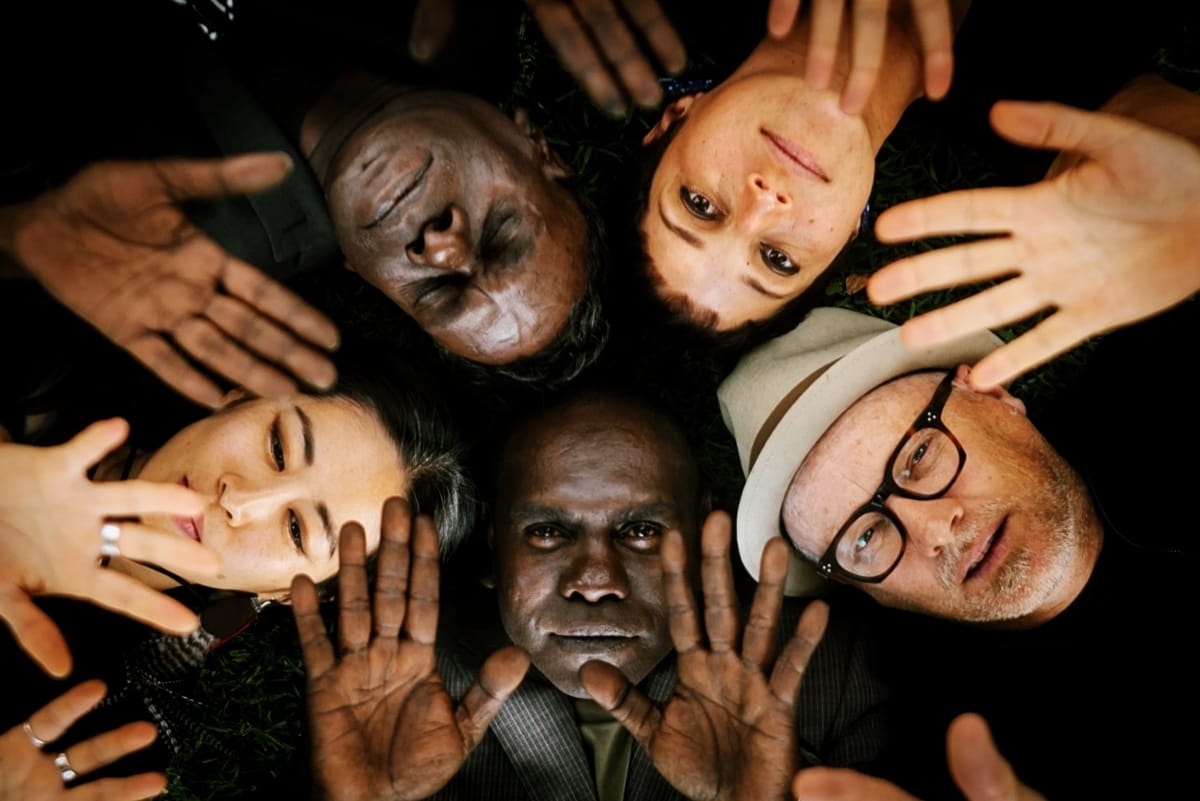
 The TonearmLawrence Peryer
The TonearmLawrence Peryer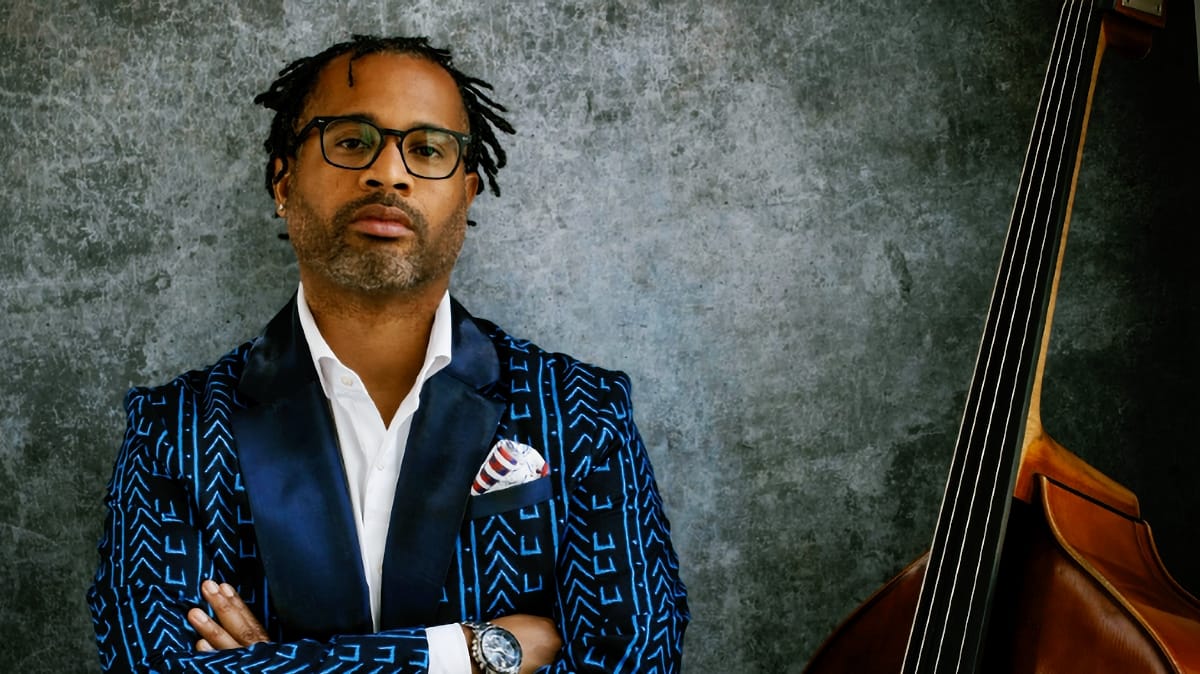


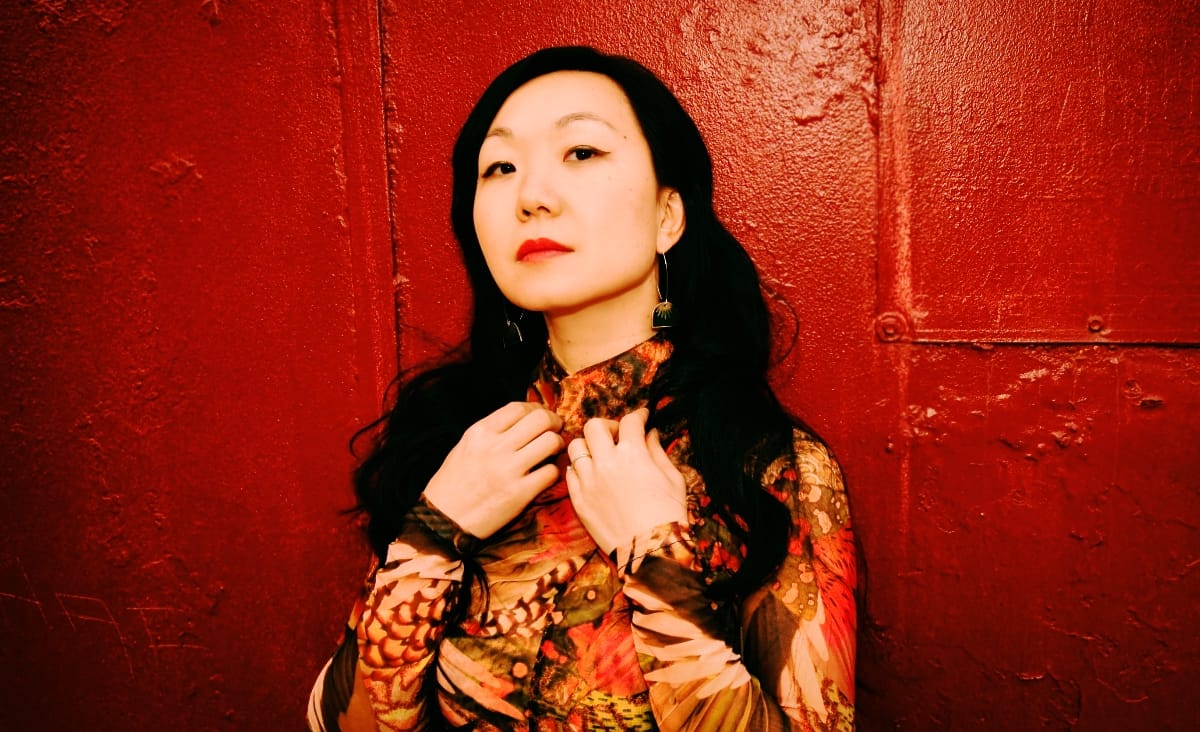

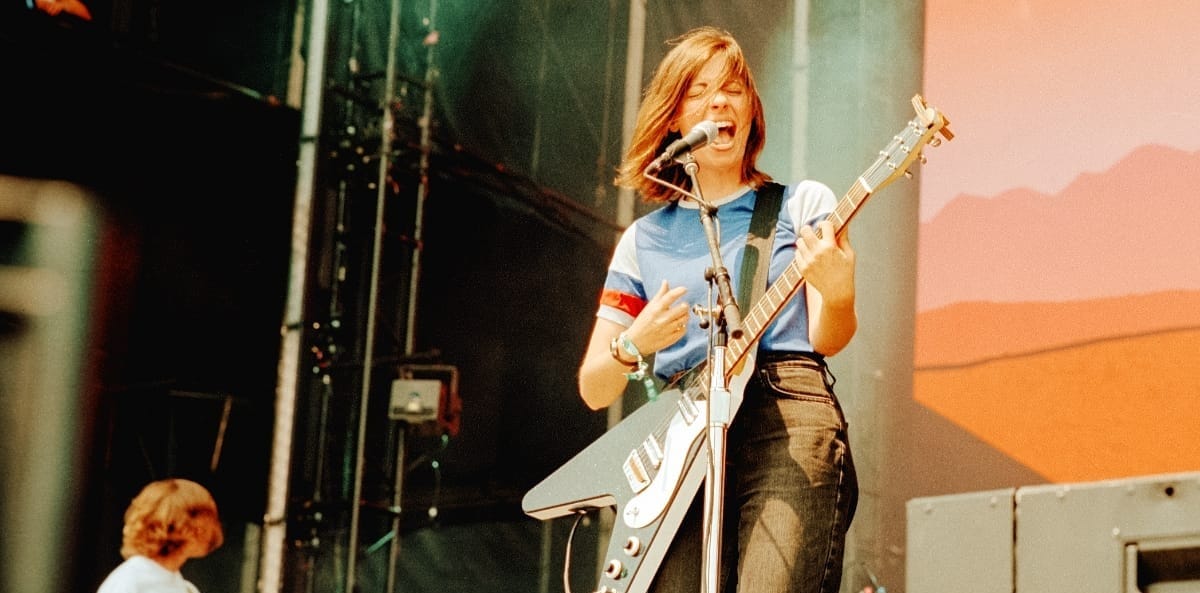

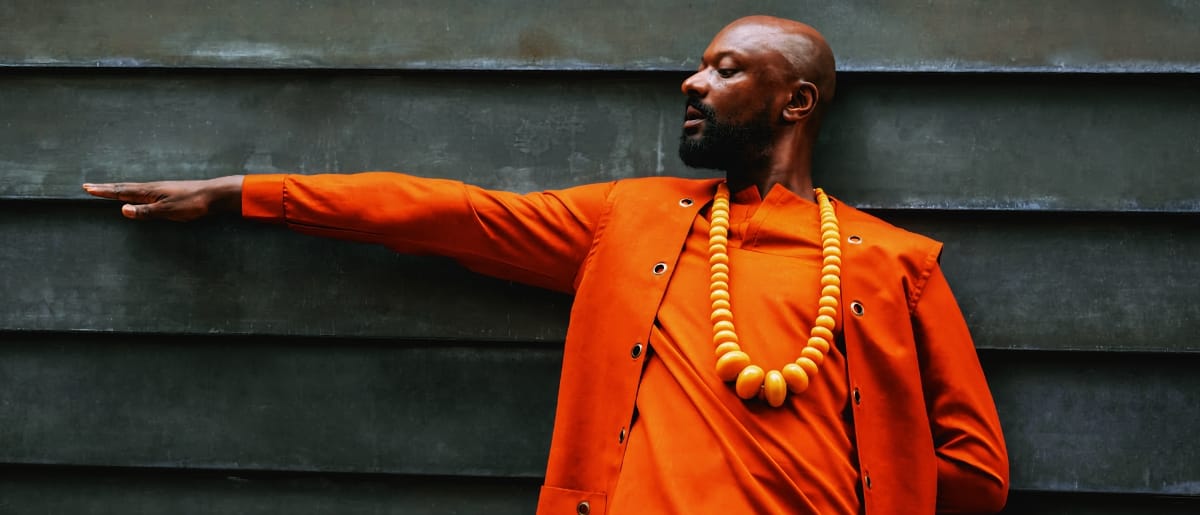
Comments